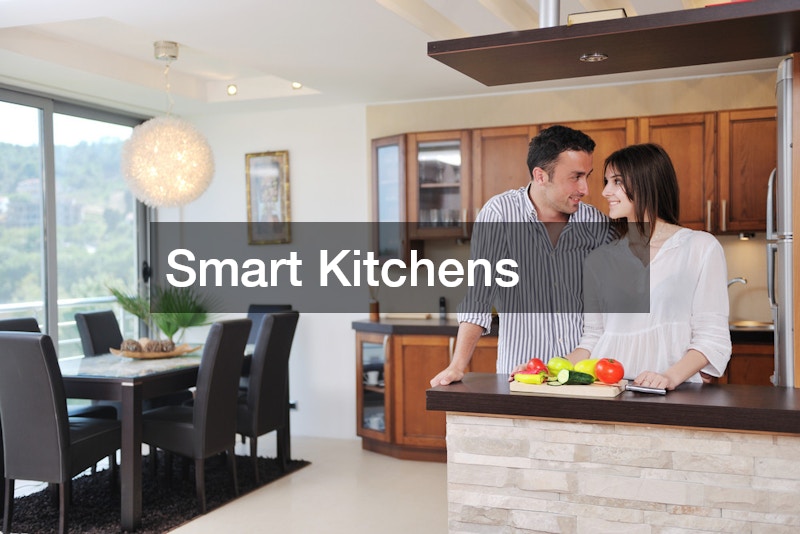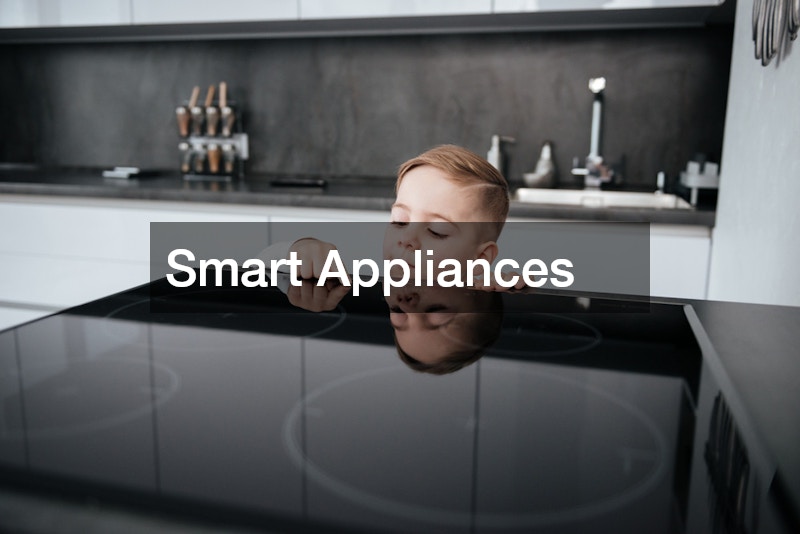The world of home automation trends are continuously evolving, offering homeowners cutting-edge technologies to enhance convenience, security, and energy efficiency. As technology advances at a rapid pace, the integration of smart devices into our homes has become increasingly seamless, creating environments that can anticipate and respond to our needs with minimal effort on our part. From controlling your thermostat through a voice command to securing your home with a smart lock system, these innovations are redefining the way we interact with our living spaces.
At the heart of this transformation is the desire for simplicity and ease, allowing us to focus more on enjoying our homes rather than maintaining them. With the help of home automation, households are able to conserve energy, improve security, and access entertainment in ways that were unimaginable just a few years ago. Whether you are an early adopter or new to the concept of smart homes, exploring the latest trends in home automation can open doors to a more efficient and enjoyable lifestyle.
This article delves into 10 significant home automation trends that you can implement to transform your house into a smart home. By examining the integration of devices like voice-controlled systems, smart thermostats, and automated water management, you’ll discover how these technologies can enhance both the functionality and the ambiance of your home. Stay ahead of the curve and explore these innovative solutions that promise to add value and convenience to your daily routines.
1. Voice-Controlled Devices

One of the most prominent home automation trends is the use of voice-controlled devices. Voice assistants, such as Amazon’s Alexa or Google Assistant, have become ubiquitous, serving as a central interface for managing various smart home devices. With a simple voice command, homeowners can control lighting, adjust thermostats, and even start showers, making daily tasks more efficient.
Integrating voice commands into your routine can greatly simplify household management. For instance, when your hands are full, you can turn on the lights or adjust the temperature without lifting a finger, ensuring a seamless and convenient living experience. Voice-controlled devices exemplify the principle of convenience by transforming traditional manual tasks into more accessible and efficient actions.
Moreover, voice-controlled devices are consistently expanding their capabilities. Manufacturers are continuously adding new features, turning these devices into comprehensive home management systems. As technology further evolves, it will increasingly bridge the gap between humans and machines, providing an intuitive means of interacting with our homes that promotes a sense of ease and comfort.
2. Smart Thermostats
Another key player in the realm of home automation trends is the smart thermostat. These devices allow you to control your home’s heating and cooling systems remotely, optimizing energy usage and saving costs. Not only can they be adjusted via smartphone or tablet, but they also learn your preferences over time, automatically adjusting temperatures for optimal comfort.
The installation process for smart thermostats has been made user-friendly, often requiring nothing more than basic AC installation knowledge. Once installed, they work by detecting when people are home and adjusting the temperature accordingly. This results in reduced energy consumption and increased savings on utility bills, proving automation to be a valuable asset in creating more sustainable homes.
In addition to reducing energy costs, smart thermostats have environmental benefits as they contribute to a reduced carbon footprint. By ensuring that your home’s heating and cooling systems are only used when necessary, these devices help conserve energy. In a world where energy efficiency is increasingly crucial, investing in a smart thermostat represents a step towards a smarter, more eco-friendly home.
3. Smart Security Systems
Security remains a top priority for homeowners, making smart security systems an integral part of smart homes. These systems offer a comprehensive approach to home security with features such as real-time surveillance, mobile notifications, and automated door locks. With smart security systems, homeowners can monitor their property from anywhere in the world using their smartphone or computer.
The convenience of smart security systems extends to the easy integration of components like door lock replacements and camera installations. This seamless connection provides homeowners with the ability to lock and unlock doors remotely, ensuring peace of mind. In the event of suspicious activity, instant alerts prompt immediate action, enhancing the safety and security of your home.
Smart security systems also cater to a broad range of needs, from basic setups to more sophisticated configurations that include motion detectors and video doorbells. The adaptability of these systems ensures that any homeowner can find the right balance of security and convenience, making them a vital part of home automation that brings significant peace of mind.
4. Smart Kitchens

The kitchen is often considered the heart of the home, and smart kitchens are redefining this space as part of automation. Modern smart appliances simplify cooking and meal preparation while also enhancing functionality and sustainability. Smart ovens, refrigerators, and dishwashers can communicate with each other and be controlled remotely, offering unparalleled convenience.
Smart kitchen devices can also provide valuable insights into your consumption patterns. This data allows for smarter grocery shopping and meal planning, reducing waste and saving money. Additionally, integration with other home systems can alert you to plumbing issues before they become serious problems, as part of an interconnected home management system.
Plumbing upgrades in smart kitchens showcase technological advancements, where systems can detect leaks and regulate water usage efficiently. This not only minimizes waste but also prevents potential damage before it occurs. Transforming your kitchen into a smart kitchen can thus enhance your cooking experience, contribute to a greener home, and elevate your lifestyle.
5. Automated Window Treatments
Automated window treatments are a growing trend in home automation that combines style with functionality. These devices can be programmed to open or close at specific times, enhancing privacy and optimizing natural light usage throughout the day. Automated window treatments contribute significantly to home comfort, adding elegance and efficiency to your home environment.
Beyond aesthetic appeal, automated window treatments also play a role in controlling the indoor climate, assisting in the regulation of temperature without extensive use of heating and cooling systems. This innovative approach is instrumental in reducing energy bills and improving the overall energy efficiency of a home, much like considering window replacements for better insulation.
Moreover, when coupled with smart lighting systems, automated window treatments create a harmonious environment that adapts to seasonal and daily light variations. The integration of this technology provides an enhanced living experience, where comfort and luxury blend seamlessly with energy-saving goals.
6. Smart Home Integrations for Solar Panels
As sustainability continues to gain importance, smart home integrations for solar panels are becoming a prominent trend. These systems integrate seamlessly with home energy management, allowing homeowners to monitor and control solar energy usage efficiently. Smart integrations ensure that energy produced from solar panels is used optimally throughout the home.
The influence of smart home integrations extends to collaboration with roofing contractors, ensuring that solar installations are effective and aesthetically pleasing. By working with contractors skilled in both roofing and solar technology, homeowners can maximize the benefits of renewable energy without compromising the structural integrity of their homes.
Furthermore, smart solar integrations work by analyzing energy consumption patterns, suggesting customized energy-saving strategies for homeowners. This empowers homeowners to make informed decisions about their energy use, combining convenience with environmental responsibility. As part of home automation, integrating smart solar solutions in homes fosters a future that is as sustainable as it is efficient.
7. Smart Appliances

Smart appliances represent a significant stride in home automation, offering functionality that extends beyond basic operations. These devices, ranging from refrigerators to washing machines, can be controlled remotely and offer diagnostic features that assist with maintenance, such as identifying when a washer repair might be necessary. The convenience and efficiency brought by smart appliances align perfectly with the concept of convenience. This level of automation significantly enhances daily living by saving time and effort.
Furthermore, smart appliances often come equipped with energy-efficient settings, allowing users to operate them more sustainably. This focus on efficiency ensures that households can minimize their environmental footprint while enjoying the latest technological advancements. As these smart devices become increasingly affordable, they are set to become standard in homes dedicated to modern living.
8. Smart Garage Openers
Smart garage openers are revolutionizing how we access and secure our garages. These devices enable homeowners to open, close, and monitor their garage from anywhere using a smartphone or tablet, offering enhanced convenience and control. This innovation represents a crucial aspect of’automation, perfect for those seeking seamless integration of home automation technologies.
By integrating with existing smart home ecosystems, smart garage openers can offer features such as automatic closure reminders, status updates, and even integration with security systems. This ensures that the garage is as secure and efficient as the rest of the house, aligning with the broader goal of enhanced home management.
Installation of smart garage openers, often undertaken alongside garage door installations, is straightforward and can add significant value to your home. As smart technology becomes more commonplace, these devices not only provide a modern touch but also ensure that your home remains secure and easily accessible.
9. Automated Leak Detection Systems
Automated leak detection systems are an essential component of smart home plumbing, offering proactive protection against water damage. These systems monitor plumbing and can alert homeowners to leaks before they cause significant damage, making them a smart addition to any household seeking to minimize risks associated with water-related issues.
With their ability to integrate with existing home automation systems, automated leak detection provides comprehensive coverage, ensuring that all areas of a home’s plumbing are monitored in real time. Upon detecting a leak, the system can automatically notify the homeowner and even shut off the water supply in some cases, preventing costly repairs and potential water damage. When combined with the expertise of plumbing contractors, automated leak detection systems can serve as a powerful tool for maintaining the integrity of both old and new plumbing systems.
10. Smart Greywater Systems

Smart greywater systems represent a forward-thinking approach to water management, allowing homeowners to recycle water for non-potable uses like irrigation. These systems effectively demonstrate the principles of health by promoting water conservation and sustainability within the home environment. They offer a solution to reduce water waste, thereby alleviating pressure on local water sources.
Integrating smart technology into greywater systems provides homeowners with real-time monitoring and control over water recycling processes. By employing such systems, homeowners can significantly contribute to environmental conservation efforts.
Furthermore, smart greywater systems complement water conditioning services, working together to ensure that water quality and usage are efficiently managed. The synergy between these systems offers an advanced level of home automation, enhancing sustainability while maintaining comfort and convenience in daily life.
The evolving home automation trends provide homeowners with innovative solutions to improve convenience, security, and energy efficiency. As technology advances, these systems are becoming more accessible, intuitive, and seamlessly integrated into our daily routines. From voice-controlled devices to smart greywater systems, each trend offers a unique way to enhance home living, catering to specific needs such as climate control, security, and sustainability.
For instance, voice-controlled devices simplify interactions with home systems, making daily tasks more efficient. Automated leak detection systems prevent costly water damage, and smart thermostats optimize energy usage to create a more comfortable and environmentally friendly home. Solar panel integrations allow homeowners to harness renewable energy while monitoring their consumption in real time. These technologies not only improve personal convenience and home functionality but also reduce waste, contributing to global energy conservation efforts.
Moreover, embracing these trends fosters a greater sense of control and security over one’s living environment. As more homeowners adopt smart home technologies, we can expect further innovations that will continue to drive down energy costs, enhance security, and promote sustainability. Ultimately, integrating home automation trends helps build a smarter, more sustainable future while improving the overall quality of life for homeowners.
